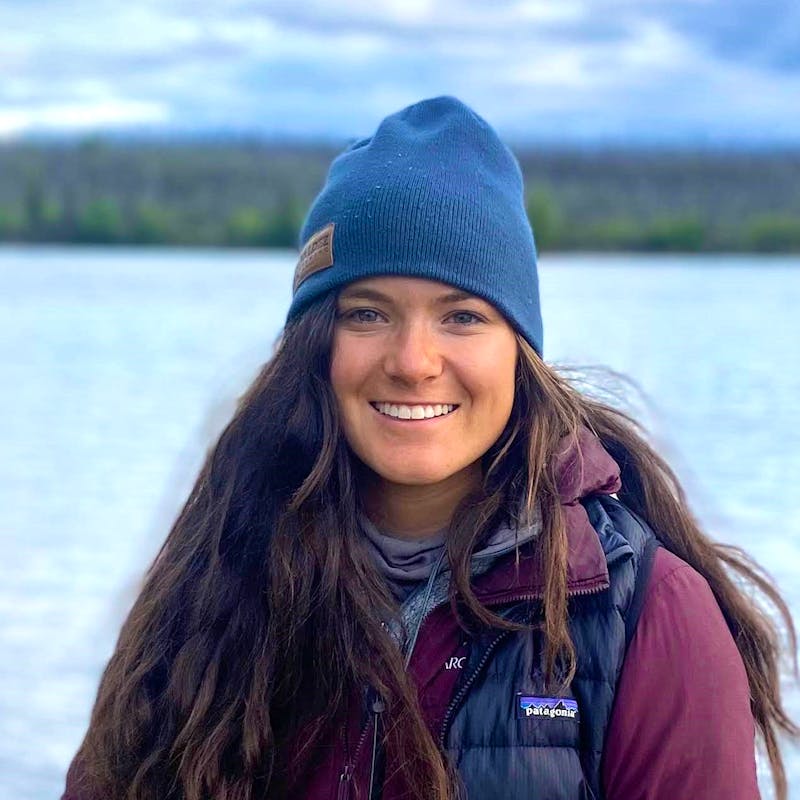May sparks renewed vigor and, depending on where you live, longer, warmer days. It’s also the time of year when communities begin devoting time to river and habitat clean-ups across the country! Here in Alaska, Defenders has been working with local partners to seize a generational opportunity to restore an entire watershed.
The Eklutna River historically hosted abundant runs of five species of Pacific salmon: sockeye, Chinook, coho, pink and chum. These fish are key prey for the critically endangered Cook Inlet beluga whales and are one of the primary reasons why the Eklutna tribe established its village on the river's banks. Then, in the 1950s, the Eklutna hydroelectric project dammed and dewatered the river, and everything changed.
The river is now disconnected from its headwaters at Eklutna Lake as the dam at the outlet of the lake created a gap in waterflow, dried out the upper part of the river and, in turn, decimated the salmon runs. The minimal water and remaining spawning grounds in the lower part of the river are not enough to support healthy salmon populations. All five species of salmon are anadromous, requiring access to the ocean for their lifecycle. The native sockeye salmon have faced an even greater threat since they require the freshwater lake to spawn.
The federal government sold the Eklutna hydroelectric project to three utility companies in 1997 and gave them 25 years before requiring them to provide a plan to mitigate the damages wrought by the project.
The utilities have put forth a plan that proposes diverting a small amount of water from existing pipes associated with the hydropower plant into the river about a mile down from the lake, essentially creating a creek. This paltry amount will neither restore the river, mitigate the damages nor support salmon. In fact, the plan would leave a gap of over one mile between the river and the lake, making it unsuitable for salmon spawning, which would not restore salmon runs or marine nutrients to the ecosystem.
Restoring salmon runs is crucial for Cook Inlet beluga whales, which live in the watershed partly fed by the Eklutna River. The additional prey from restoring salmon runs could be crucial for the recovery of this endangered whale and would be very important in the fall months when whales are frequently spotted at the mouth of the Eklutna River.
Defenders works with the Native Village of Eklutna and other partners to advocate for restoring the Eklutna River by providing enough water for salmon and connecting the river to the lake. Right now, the parties to an associated 1991 agreement regarding Eklutna River restoration have an opportunity to comment on the utilities’ proposal. One party to the agreement is the National Marine Fisheries Service (NMFS) which manages Cook Inlet beluga recovery. Please sign our action alert to urge NMFS to ensure Eklutna River restoration – for salmon and belugas!
As spring turns to summer, keep your local rivers in mind too! Consider attending a local river clean-up and supporting river restoration projects in your community this May.







